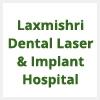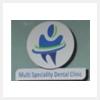Doctors Dental Surgeons Dentists In Latur
1
Laxmishri Dental Laser & Implant Hospital
16,Maruti Complex,Below Shraddha Lodge,Opp Bus Stand,Latur 2
Smile Care Center
F F 2,Sunil Terraces,Near Bus Stand,Latur 3
Danges 32 Care Points Dental Clinic
In Front Of Bus Stand,Maruti Complex,Latur 4
Dr Shashi Patil
2/23,Near Ashok Hotel Road,Kavthale Hospital,Tilak Nagar,Latur 5
Yash Super Speciality Dental Clinic
1st Floor,Vyapari Dharmashala Complex,Gandhi Chowk,Latur 6
Dr Deshmanes Mauli Dental Clinic
Sambhaji Complex,Opp Shivaji Nagar Police Station,Shivaji Chowk,Latur 7
Yogeshwari Orthodontic Clinic & Multispeciality Dental Clinic
Subhash Chowk,Latur 8
Balkunde Dental Implant And Oral Surgery Center
Shop No 21,Municipal Shopping Complex,Near Old Railway Station,Opp Sales Tax Office,Gandhi Chowk,Latur 9
Dr Sham E Sangle
Shop No 2/3,B K Estate,Ambajogai Road,Latur 10
Deshmukh Dental & Skin Clinic
Near Shantai Hotel,Ambajogai Road,Latur Frequently Asked Questions